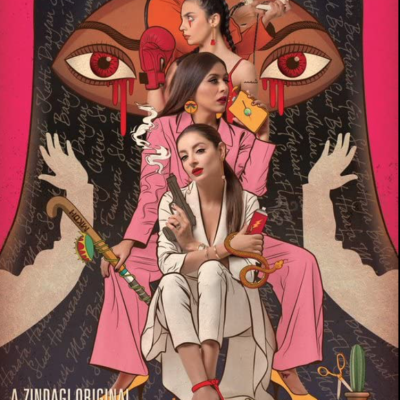Reel Review
Naomi Osaka has been in the news recently for pulling out of the Tokyo Olympics, refusing to do media interviews…
My friend’s son, too, likes wearing tutus and frilly skirts. Every time they go shopping for clothes, he heads to the girl’s section and picks out the frilliest outfit. At check out, invariably the cashier asks if the pretty outfit is for his sister and he confidently says it is for him. Often he wears these outfits to school. His confidence comes from his mother’s acceptance of him and her understanding of his gender expansiveness. It helps that she is a sociologist, but there is a constant pushback from society including from his peers at school who bully the little boy. But it is the constant support from his mother and family that allows him to remain confident and thrive whilst being different.
I recently watched North Country on Netflix, a movie based on a true story of a woman’s fight for equality at the workplace. It is based on the case, Jenson vs Eveleth Mines, in the United States in which Lois Jenson, fought for the right to work as a miner, and the right to work free of sexual harassment. She won the landmark 1984 lawsuit, which was the first class-action lawsuit on sexual harassment at the workplace in the United States and resulted in companies/organisations having to introduce sexual harassment policies at the workplace.
Their inimitable personalities showcase their varied conceptions of insaaf (justice), enriching and intensifying the plot and, at the same time, reaffirming their solidarity and strengthening their unity.
The movie was criticised for its stereotypical portrayal of Debu as a gay man. But, the beauty is that it also highlights the reversal of gender roles. The smiles, and the laughter sounding throughout the house, create a cheery note in the movie.
Last weekend, after a very hectic week, I was looking for a light and easy movie to watch and came…
This movie had instantly called out to me because the book had made a huge impression many years ago when I was going through a Stephen King phase and consuming as many of his novels as I could. It is a story of resilience where a woman had to rescue herself from a dangerous situation of metaphorical and emotional bondage as well as the physical and sexual kind.
Lawrence may have given Elena a world and a voice. But it was she who chose to delve into the unknown world of sexuality. It was she who chose to see the beauty and the richness of pleasure within communities of sex workers, soldiers, the elite, all alike. She alone chose to discern as well as reconcile love, as we commonly seem to know it, with a life in which she is capable of many loves.
Tales delicately yet powerfully draws out the conflict between sex workers and feminism in India,at a time when a lot of feminists thought of prostitution through a SWERF lens[1].
As the fire rages on and licks of flames get higher and higher, the burning desire, tension and sexual chemistry between the two rises to a crescendo. Heloise gets so consumed that a part of her dress catches fire, but it is quickly put out by the other women present there.
I believe that such mini-series as “Unbelievable” will help people have a better understanding of what women go through when they experience a horrific incident like rape or sexual assault.
The movie Shubh Mangal Saavdhan was a commentary about perversions in our society – the denial of the truth about sexuality, that sex is normal, that sex could be just another physical need, that sometimes sex can be boring, that sometimes sex can frustrate.
Fouzia Azeem, more popularly known as Qandeel Baloch,was called Pakistan’s Kim Kardashian. Madiha Tahir, a journalist and filmmaker who is interviewed in the documentary,questions this comparison. To quote her: “She (Qandeel) is not Kim Kardashian at all. She is not famous for being rich. An upper-class woman would have her class protection and it’s unlikely that an upper-class woman would be supporting her family from these social media videos.”
It was a million dollar question. Literally. The Hollywood film Indecent Proposal (1993) had actors Demi Moore and Woody Harrelson…















